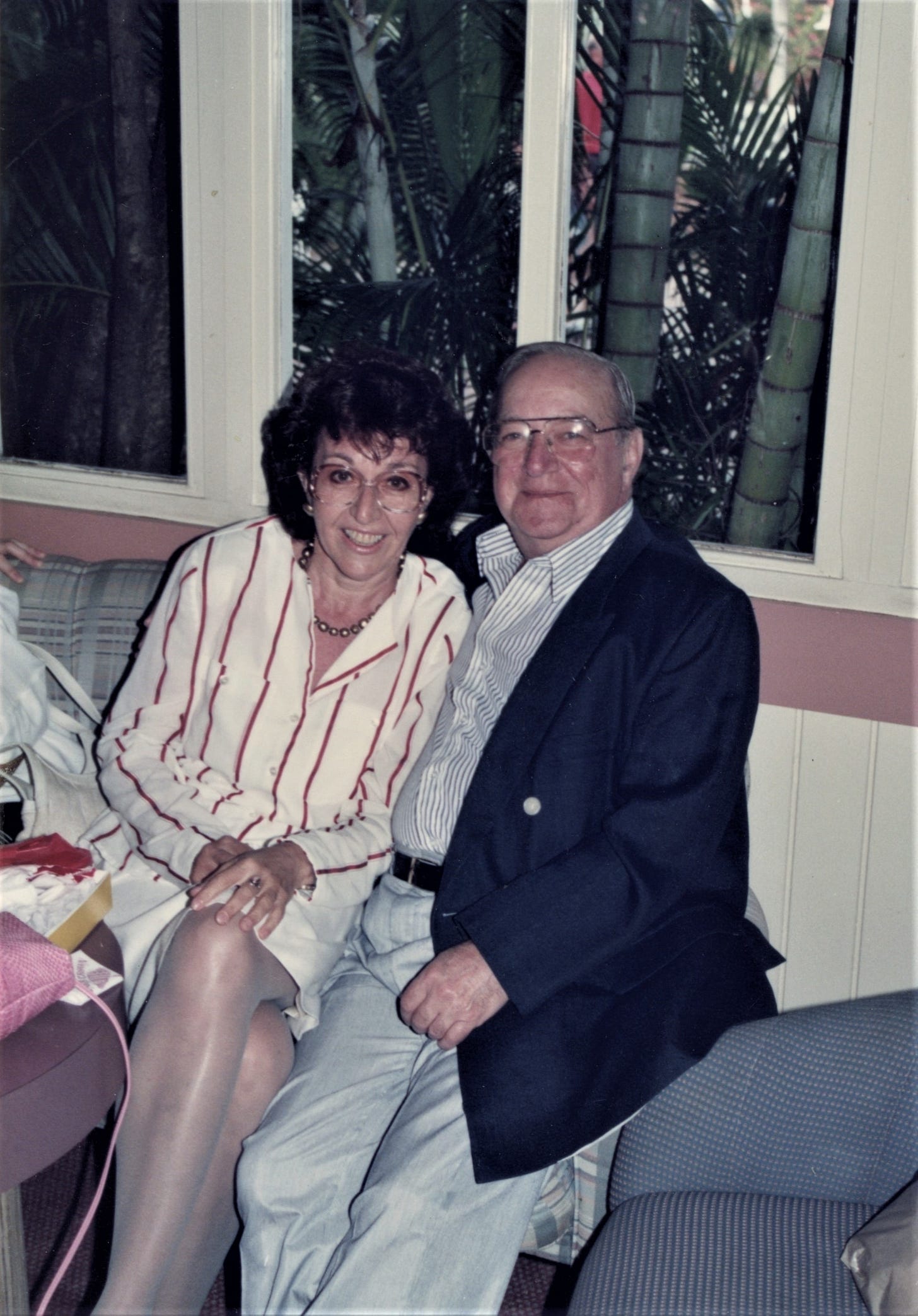“Self pity becomes your oxygen. But you learned to breathe it without a gasp. So, nobody even notices you're hurting.”
― Paul Monette
On a late spring afternoon in 1996, my father called to say that he and Shirley, my stepmother, were apartment sitting at a friend’s place in the east twenties, just west of Second Avenue. Their friends were academics; my stepmother was a tenured professor of psychology at Brooklyn College who, I would learn years later, specialized in trauma and cultural violence, meaning: if there was a hostage standoff on campus, or some sort of hate-based crime, Shirley was the one they called in.
I was in my early thirties and living on East Fifty-Seventh Street at the time of their apartment-sitting, so when my father called me at work one day to ask if I’d want to come down and have dinner with them, I said yes. I loved them and loved being with them as often as I could; I also had something to tell them—something that would potentially separate me from the rest of my beloved family, with all their kindness, conservative liberalism, their degrees and their travels, their lovely homes and their children, forever.
In the mid-nineties, I was, by day, an editor at HarperCollins Publishers, and by night, a writer of short pieces: essays and short stories that I would submit for publication, that would be accepted, and that I prayed nobody would ever see. Like most writers, I cringed at being found out as a fraud — this was my first experience with imposter syndrome — and yet I wanted to share my work not for validation, but because I was convinced that other people might read it, and they might breathe more easily. In those days, I was editing books that ran the gamut from commercial fiction to commercial autobiography (I was Dolly Parton’s editor, and yes, she is as lovely and brilliant as you’d hope she is). And then I came back from lunch one day and there were two new manuscripts waiting for me on my desk: Aimee and Jaguar, and Is It A Choice by Eric Marcus, who had gone to junior high school with me in Queens but was a few years older. My manager and I acquired Aimee and Jaguar, and passed along Is It A Choice to a more appropriate internal editor. Aimee and Jaguar was eventually turned into a movie, and as happens in book publishing, if one has success with a particular kind of book, one begins to receive manuscripts in the same genre, submitted by agents who have perhaps recognized you as an expert in that particular area; And this is how I became an editor of books about gay men and women, and what it means to live an authentic life in a world that would like you to be invisible.
We had a saying in the nineties: My closet has a revolving door.
In 1996, I lost two of my dearest friends in succession, to AIDS; they had been partners for years, and I watched as they became shadows of their robust selves. By the early nineties, not one man out of thirty I had worked with at Dean and Deluca in 1988, barring my boss, was still alive; they all succumbed to AIDS. In 1998, Matthew Shepard was murdered in Wyoming — abducted by two men, beaten, tied to a fence post, and left to die. I could no longer bear witness to the catastrophe unfolding in front of me from inside a closet I was tentatively, finally, leaving. We had a saying in the nineties: My closet has a revolving door. That night with my father and stepmother, I came out to them; I wept as children of any age — I was in my thirties — commonly do. My father took me in his arms, told me how much he loved me and how proud he was of me, and then we went out for dinner. I had opened the closet door, stepped outside, locked it behind me, and thrown away the key.
I was very lucky; this is not lost on me.
A recent survey revealed that nearly half of all queer youth have considered suicide.
Because of my proximity to the narratives of the time — Mark Doty’s Heaven’s Coast, Dorothy Allison’s Two or Three Things I Know for Sure, Paul Monette’s Borrowed Time, and so many others — and the fact my wide circle of friends and I were spending massive amounts of time at bookstores like Oscar Wilde and A Different Light, I came to hear the terrible stories of conversion therapy, of young people fleeing the violence of their homes and taking to the streets, of young people taking their own lives after being bullied for being who they were. I myself wrote about an experience I had when I was fourteen — I knew I was different but I had no words for it yet — and bullied by every member of my class as well as the teacher, who gave her tacit approval to her class-full of honors’ society students desire to torture one of their classmates who they recognized as clearly and obviously different. That had happened to me in the wild, unhinged New York City of 1977, and at that time, no teenager could safely say I think I may be queer and not expect reprisal. So, like many kids in this situation, I became clinically depressed; I became suicidal. I made attempts; I failed; I lied and once told my parents that someone had spiked the Tab I was drinking in the schoolyard between classes. If they suspected the truth behind what happened, they never let on; they also made the decision to not call an ambulance.
All of which is to say that when we talk about the lives of queer young people, please know this: the fact of their safety — which is now being studied as though it was somehow never talked about before — in places all over the country but especially in Florida is not news. The criminal treatment of queer young people leading to their severe mental health crises and suicide has been a problem for generation upon generation; a recent survey revealed that nearly half of all queer youth have considered suicide.
It’s time, then, to breathe truth into the definition of Right to Life. Every queer child — every queer person, every trans person, every non-binary person, every straight person —- has a Right to Life, to happiness, to safety and security, to know what it means to feel love and to love, to know passion and joy. The Right to Life party needs to recognize this: you cannot possibly declare yourself pro-life while simultaneously supporting the destruction of the lives of a group of people you don’t like, or don’t understand, or find icky. We cannot call ourselves a society dedicated to the protection and welfare of young people if we exclude some of those young people.
You cannot be Right to Life, but only sometimes; either you are, or you aren’t.







I had a student in transition a couple of years ago who I mostly just took to lunch, and tried to keep alive until the end of the year. I kept telling them stories of NYC in the 80s, of the struggles people I loved had coming out in the 80s and 90s. One day, exasperated, they said "It's not like being gay! Being gay is normal!"
Oh sweet summer child. Glad we'd come that far. Also glad this lovely person is no longer living in Montana, where their life is in danger.
I hate seeing the right wing try to drive everyone back into closets. Today, we have Montanan's protesting outside the state capitol where the GOP legislative leaders are refusing to recognize a fellow legislator from Missoula because she called them out for the blood that will be on their hands after passing a virulent anti-trans bill. We already have the highest suicide rate in the nation.
Great piece Elissa -- keep up the good work.
Your Dad...I see you in his sweet face!